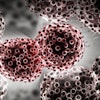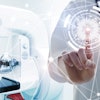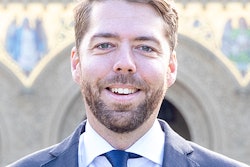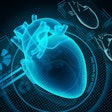
BURLINGAME, CA - What impact will artificial intelligence (AI) have on radiology? Dr. Curtis Langlotz, PhD, of Stanford University sees AI as just the latest in a series of technological revolutions that have reshaped medical imaging over the decades. He discussed this idea in a video interview at the RSNA Spotlight Course: Radiology in the Age of AI.
While many radiologists fear that AI could take their jobs, Langlotz is less pessimistic. Radiologists may need to change and learn new AI-related skills, but AI is just the next wave in a series of developments that have included CT, MRI, ultrasound, and other technologies that radiologists have come to master and incorporate into their clinical practice.
"Some of the things that we do that we find tedious, which might be measuring lesions, tracking lesions over time, those are the kinds of tasks that AI is going to be very good at, so in some ways it will change our jobs for the better," he said. "We will be doing the things that are cognitively more interesting and challenging for us."
Dr. Curtis Langlotz, PhD, of Stanford University.



















